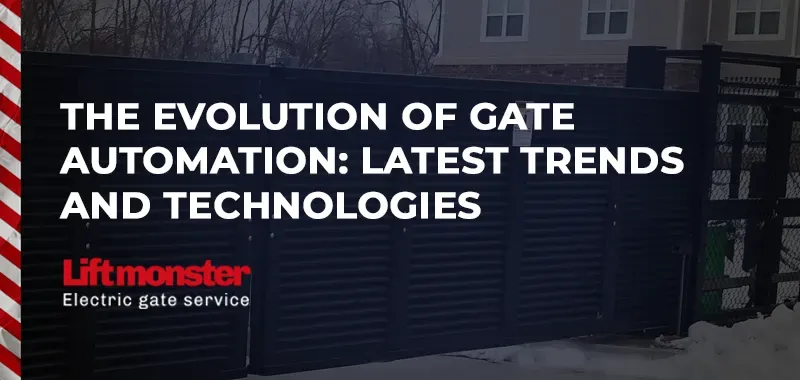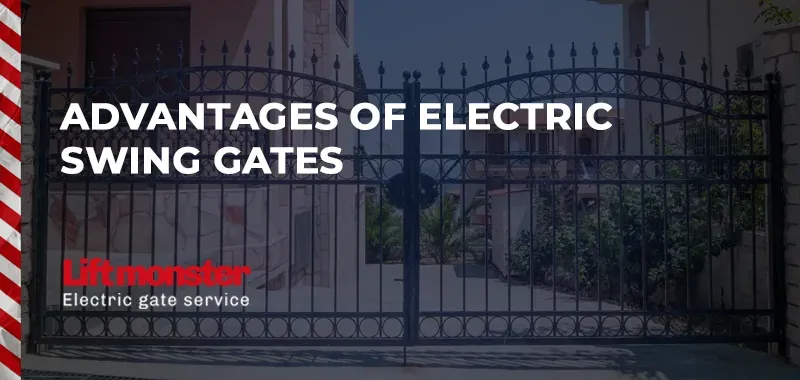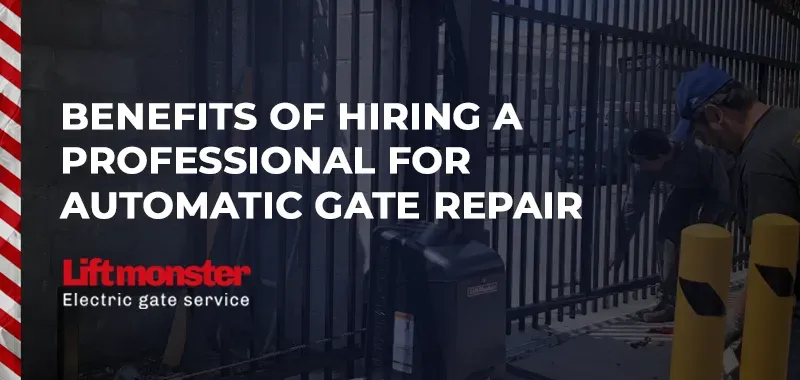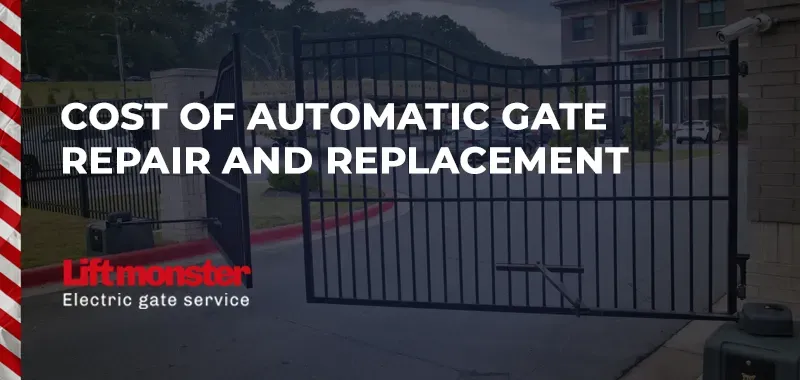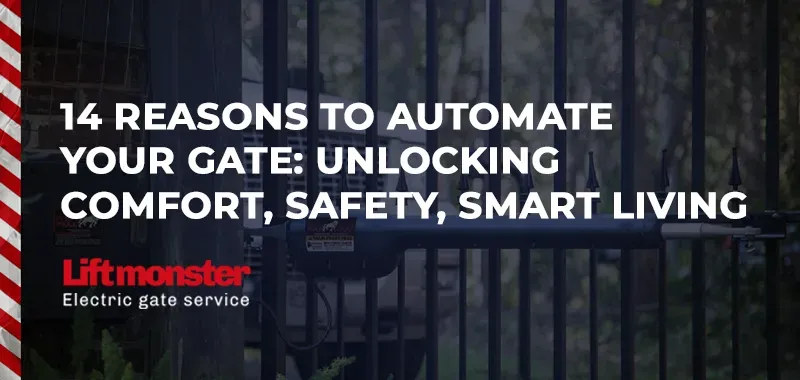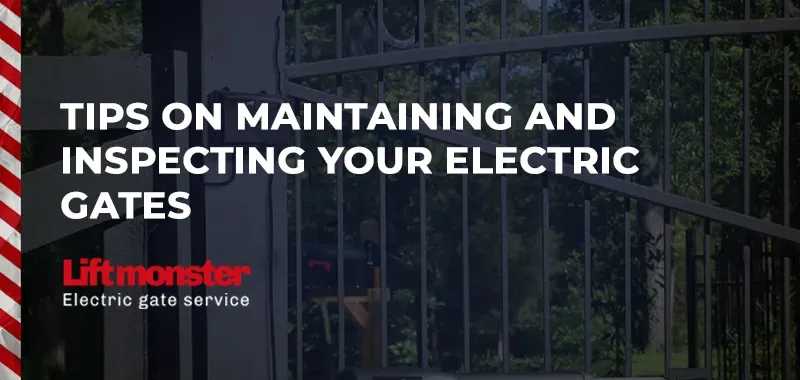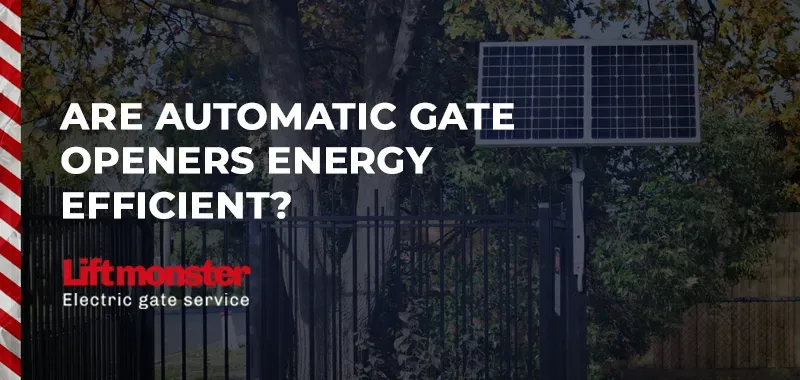The Importance of Regular Maintenance for Electric Gates
Electric gates are a game-changer. They add security, convenience, and a touch of luxury to your property. But here’s the hard truth—if you’re not keeping up with maintenance, you’re setting yourself up for costly repairs, security risks, and the sheer frustration of a malfunctioning gate. Think about it: you wouldn’t neglect your car’s servicing and expect it to run perfectly, so why would you take that risk with your electric gate?
At Lift Monster, we know electric gates inside out. Whether it's residential, commercial, or fully automated gates, we repair and install all types of motors. And trust us, regular upkeep is the secret to avoiding breakdowns and prolonging the lifespan of your investment. Let’s dive deep into why maintenance is crucial, what could go wrong, and how to stay ahead of problems before they escalate.
Impact of Weather Conditions on Gate Functionality
What Happens When You Ignore Maintenance? (Hint: It’s Not Pretty)
Neglecting your electric gate can lead to a range of problems, from minor annoyances to full-blown disasters. Here’s what you might be dealing with if you skip routine checkups:
- Gate Stops Working Suddenly – Picture this: you’re late for work, you press the button, and nothing happens. The gate is stuck. Panic mode? Activated.
- Slow, Jerky, or Noisy Movement – A well-maintained gate should glide smoothly. If it’s jerking, stuttering, or making weird noises, it’s crying out for help.
- Electrical Failures – Faulty wiring, power surges, or water damage can fry the motor, leaving your gate completely unresponsive.
- Safety Hazards – A malfunctioning gate can be a major safety risk, potentially closing unexpectedly or not detecting obstacles properly. That’s a lawsuit waiting to happen.
- Higher Repair Costs – Fixing small issues is cheap. Replacing an entire motor or gate system? Not so much. Regular maintenance keeps your costs predictable and manageable.
The Common Culprits Behind Gate Problems
Understanding what causes electric gates to fail is the first step toward preventing issues. Here are some of the usual suspects:
1. Dirt and Debris Build-Up
Leaves, dust, and even tiny rocks can jam up the gate’s moving parts, causing wear and tear over time. Lack of cleaning can also lead to rust, particularly if the gate is exposed to rain and humidity.
2. Lack of Lubrication
Your gate’s moving parts need lubrication to function smoothly. When they dry out, friction builds up, causing grinding noises, sluggish movement, and eventually, motor strain.
3. Electrical Issues
Wiring problems, loose connections, or a blown fuse can leave your gate dead in its tracks. Power fluctuations can also damage the circuit board, leading to expensive repairs.
4. Sensor Malfunctions
The safety sensors on your gate are designed to detect obstacles and prevent accidents. When they get misaligned or blocked by dirt, your gate may refuse to open or close properly.
5. Battery or Motor Wear-Out
Automatic gates rely on motors, and motors don’t last forever. Batteries in remote controls and backup systems also degrade over time, leading to unexpected failures.
How to Keep Your Electric Gate Running Like a Dream
Now that you know what could go wrong, let’s talk about keeping things in top shape. Here’s your step-by-step guide to proper electric gate maintenance.
1. Keep It Clean—It’s That Simple
Dirt and debris are your gate’s worst enemies. Wash it down regularly with mild soap and water to prevent grime from building up. Pay extra attention to the tracks and hinges, ensuring they’re free of obstructions.
2. Lubricate the Moving Parts
Friction is not your friend. Apply a high-quality lubricant to the hinges, rollers, chains, and tracks every few months. But don’t go overboard—too much grease can attract dirt and create a sticky mess.
3. Test the Sensors Regularly
Block the gate’s path and see if the sensors respond correctly. If they don’t, clean them and realign them if necessary. Faulty sensors can lead to dangerous malfunctions.
4. Inspect the Electrical Components
Loose wires, corrosion, or water damage can wreak havoc on your system. Check for exposed wiring or any signs of wear and tear. If you notice flickering lights or inconsistent gate movement, call an expert.
5. Check the Remote and Backup Power
A dead battery in your remote can be the simplest reason your gate isn’t working. Also, if your gate has a battery backup, test it to make sure it can handle a power outage.
When to Call the Experts (And Why DIY Isn’t Always the Best Idea)
While regular cleaning and basic maintenance can be done yourself, some things require professional expertise. If you notice any of these red flags, don’t hesitate to call Lift Monster:
- The gate is making grinding or screeching noises.
- It moves inconsistently or gets stuck mid-motion.
- The motor seems to be straining or overheating.
- The gate won’t respond to commands.
- You suspect an electrical issue but don’t know how to fix it safely.
We specialize in diagnosing and fixing electric gate problems quickly, saving you time, money, and frustration.
Final Thoughts: The Key to a Reliable Gate Is Consistency
Regular maintenance isn’t just about avoiding repairs—it’s about protecting your investment, ensuring safety, and keeping life hassle-free. Whether you have a residential, commercial, or automatic gate, staying on top of maintenance means fewer headaches and lower costs in the long run.
At Lift Monster, we’ve got the expertise to keep your gates in perfect working condition. Need a repair or an installation? Give us a call—we’ll handle it so you don’t have to. Because let’s be honest, a properly functioning gate isn’t just a convenience. It’s peace of mind.

